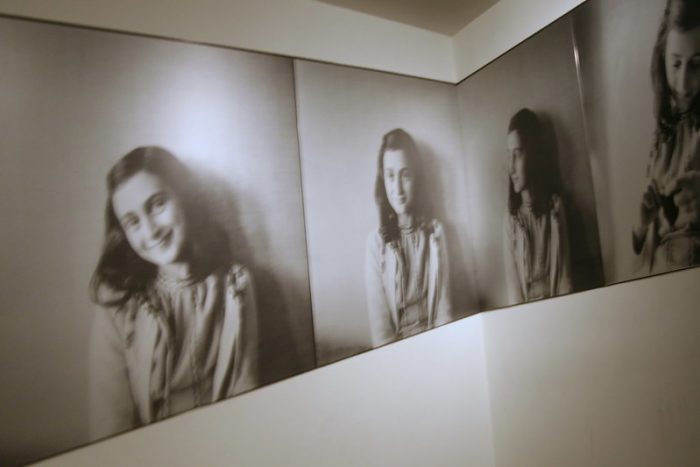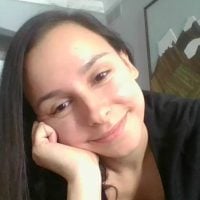Last December, a visitor in Boise, Idaho, was strolling through the park when they noticed that the Anne Frank Human Rights Memorial had been defaced with nine swastika stickers.
Written on the pieces of paper in large, bold letters read an ominous statement: “We Are Everywhere.”
After the incident was reported, the Boise Police Department assured the community that it would review the surveillance video in its investigation, while Mayor Lauren McLean spoke out against the act of hatred, insisting that the rhetoric had no place there. The memorial was built by the Wassmuth Center for Human Rights in 2002 and was dedicated to the public as an educational park for the purpose of encouraging visitors to reflect on and respond to human rights issues around the globe.
Earlier this month, however, a similar atrocity occurred near the memorial, in the tunnels on the Boise Greenbelt. Messages expressing profanity and anti-Semitic sentiment were spray-painted in the tunnels themselves. Officials have once again said that they are thinking about installing security cameras to prevent this vandalism from recurring. This is the only Anne Frank Memorial in the United States, and this is the third time it has been vandalized since 2017, which marked a year since Donald Trump rose to power.
After receiving this news a year ago, I felt a combination of sadness, outrage, and even alarm—particularly because I was in the process of rereading The Diary of Anne Frank and had just finished watching a two-part miniseries, titled, Anne Frank: The Whole Story, based on a biography by Mellissa Muller.
Ever since my early teens, I have adored Anne Frank and was eagerly drawn to her world with each turn of page. For me, reading her diary felt like reading the chronicles of a friend or acquaintance living in vicious times. Through her words, I could sense a warm and kindred spirit, full of life and brimming with wit and gumption. Her wisdom also moved me deeply and, even now, I can’t help but think, wow. She was so advanced, so awakened, and she no doubt could have done so many invaluable things had she only been given the chance.
But Anne Frank never got the chance to become all she wanted to and could have been because her life, along with millions of others, was ruthlessly and brutally stolen from her. And why? Because she was Jewish.
On April 5, 1944, which was only a few months before she and her family were discovered and sent to a concentration camp, she wrote the following words: “I don’t want to live in vain like most people. I want to be useful or bring enjoyment to all people, even those I’ve never met. I want to go on living even after my death!”
Part of Anne’s wish came true. She did go on living even after her death and has served as her own kind of emblem, whilst helping the rest of the world put a more intimate face on victims of the Holocaust. Moreover, her diary has made her the most famous young author of all time, has been translated into more than 65 languages, and is still one of the most widely read books in the world. And now, here she is today, immortalized as a statue near the Boise Public Library, where she continues to serve as a reminder of our basic and common humanity.
The caveat? The rise of anti-Semitism in the U.S. in 2021.
Years ago, I read an unsettling historical belief: anti-Semitism is the world’s oldest form of prejudice. Although the Holocaust is the ultimate example of such extreme hatred, the dislike of and hostility toward Jewish people dates back as far as their history. Even in ancient empires, Jewish people were persecuted for refusing to assimilate with their conquerors and choosing to remain a distinct cultural group of their own.
The rise of Christianity in Europe further vilified Jews, and during the great plagues of the 14th century, they became scapegoats and were blamed for the destruction and ravage it caused. Of course, this only made it easier for future generations to falsely fear and persecute them. Many were also stripped of their civil liberties and confined to ghettos.
Now, here we are today, nearing the tail end of 2021 and reports from the American Jewish Committee state that anti-Semitism is indeed on the rise. Here are four frightening facts:
1. One in four Jews in America have claimed to have been targets of anti-Semitism in the 12 prior months.
2. Four out of 10 American Jews have tried to disguise themselves out of fear.
3. Four out 10 of all Americans have borne witness to violent acts of anti-Semitism.
4. 82 percent of Jews in America claim that anti-Semitism has increased in the past five years.
Four or five months ago, I was watching a world news clip on YouTube proclaiming that Israel was to administer COVID-19 booster shots to its elder and more vulnerable citizens. In the comments was a sentiment that made my blood boil. The person wrote, “There they go allowing themselves to be victims of medical experiments again. Why don’t they just go back home to Poland?”
Reeling on the inside and rendered almost speechless, I flagged this person’s comment and replied, “What a horrendous thing to say! Who could ever make such an abominable comment?” The following day, the individual replied, “Don’t blame me. The Bible says if you can’t accept the Son, you can’t have the Father.” This statement, of course, was intended as a direct slam against the fact that Jews do not traditionally accept Jesus as their messiah and personal savior. To see that any person could write such a vile statement against a group of people wo have faced centuries of persecution, even prior to the Holocaust, to me, was unthinkable—especially coming from someone who alluded to being a follower of the teachings of Christ, who said, “Love thy neighbor.”
Prior to that incident, I had also read a news piece about pro-Palestinian protests and anti-Jewish vandalism at synagogues in Florida and Illinois, as well as acts of violence targeted at outdoor diners in Los Angeles. To continue to deny that anti-Semitism is alive and rapidly on the rise in the face of these acts is an atrocity in itself. That being said, whenever white supremacy, heterosexism, misogyny, and conservatism abound, you can be certain that racism will follow, as will a desire to uphold and intertwine the ideals of Church and State.
Although I am a Canadian, I still fear the long-ranging and far-reaching consequences of the political and social climate of my nearest North American neighbors. There is a global consciousness at play which we cannot, nor should not, underestimate or ignore. To do so ensures that anti-Semitism will prevail, along with a long list of other “isms.”
Most people talk about hell being part of an afterlife filled with fire and brimstone. Not me. My concept of hell is the current human condition on planet Earth. Hell is in the hatred we feel for our fellow beings. Hell is in our perception of ourselves as separate from one another and as being nothing more than a language, nationality, or skin color. Hell is in enacting and enforcing laws that make it harder and harder for humans to live, work, and rise above their impoverished circumstances. Hell is essentially in us.
But so is the untapped potential for a higher consciousness, of which unconditional love is a byproduct.
When I try to forget what I think I am, which includes nothing more than a brain and a bag of bones, I feel a lightness in me that sooner or later begets a deeply sensed and pervasive love. That love extends beyond the tip of my own nose, across towns and borders. I experience myself as a piece of a larger cosmic puzzle, small but nevertheless important in the formation of a much greater picture than even I could ever possibly imagine.
In a similar vein, I see my fellow beings through that same filter of wonder and significance, regardless of what appears to keep us separate or otherwise different from one another, such as ethnicity, religion, political affiliation, language, and skin color. Suddenly, none of those differences matter. The only thing that does matter, in those moments, is love itself.
It was Anne Frank herself who once wrote, “Look at how a single candle can both defy and define the darkness.”
That, I now realize, is what every one of us needs to become: a beacon of light that not only defines the darkness on this planet but simultaneously casts it out as the wall that is separation consciousness melts before our eyes and the warmth and effervescent brightness that is unity consciousness expands slowly outward until all of humanity becomes a cradle for a newer and lighter Earth.
~


 Share on bsky
Share on bsky





Read 6 comments and reply